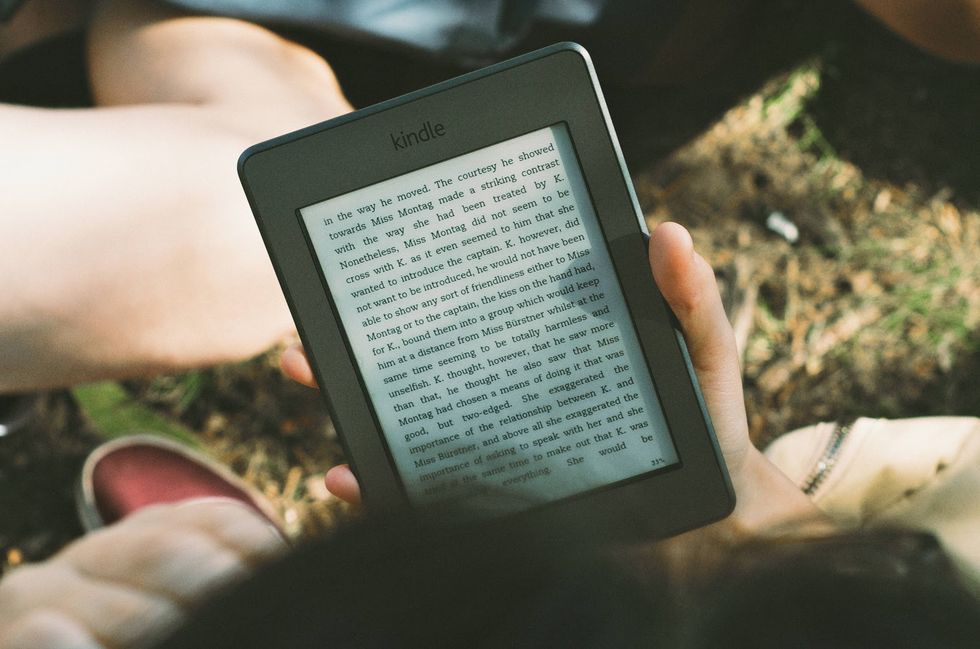When you go into a bookstore today, such as Barnes & Noble, you will see a growing section solely dedicated to its online e-reader. Even internet and phone company giants have created their own tablets in order to both accomplish work tasks and “fun” tasks — playing games, reading books or magazines, checking up on social media, or streaming videos. If you look at our society from a socioeconomic and political point of view, people continue to aspire for efficiency.
I get it — our society craves information from the palm of our hand, literally, and we always want to be in the know: to know the latest celebrity gossip or scandals, to know how much our country is in debt, to know why we are involved in another country’s war when it may not be any of our business.
I’m not saying to avoid tablets or e-readers completely or protest against them, I am simply trying to provide a fresh perspective on an old-fashioned way of life in a technological age.
Remember the traditional paper boy who would get up wicked early to throw your newspaper to your front doorstep? Yeah, that paper boy is called the online e-reader.
As an English major, my professors have assigned long scholarly articles to read for a class, often through PDF format. Although this is convenient and easily accessible, both for the student and the professor, I am a firm believer in printing out twenty-something pages (double-sided, of course) and actively engaging with the text. The ability to highlight and write notes, as you follow the text, helps build upon your study habits while acquiring new information — a good deal, right?
On a tablet, these readers now include highlighting features and may also have a note-taking feature but can easily rid your mind of what it’s supposed to learn. When we scroll through social media posts or links, we typically want to find the answer as quickly as possible. It’s amazing how societal mannerisms and attitudes affect our daily lives! At one point in history, people valued quality over quantity; today, the complete opposite.
Even when my professors assign readings from a book, in which they have shared an online PDF version, I will still print it out. For me, I need to physically hold what I’m reading in order to better understand it. Yes, if I used my Ipad or tablet to read the assigned reading, I’m technically holding the tablet itself. I will admit, it’s cool how a finger swipe easily turns a page and how the reader can highlight the page too, but a screen interface doesn’t come across as permanent nor memorable to me.
Thinking beyond an academic setting, I would much rather go to the bookstore and buy a physical copy of a book instead of going online. I get so excited seeing the endless bookshelves harnessing a multitude of book genres, from classics to the sappy teen romantic novels (don’t deny it, you have read one of these too!). It also gives me the reassurance that authentic book publishing hasn’t died in our society of online accessibility and efficiency.
Those of you who are bookworms, you may understand where I’m coming from, but sometimes when I start reading a book, I feel like I have established a connection with the book: its characters, plot, setting, and its substance. I feel like I’m part of the book.
Books have the magical power of transporting its reader into the moment, time period, and even its characters. Don’t deny it, some of you have felt an actual connection and would do anything to be in the arms of that desirable character. When holding a tablet, however, I feel nothing.
When I turn a book’s pages, I have the greatest satisfaction of accomplishment —getting closer to that next chapter or checking another book off of my personal reading list. And let’s not forget about the smell of a book! The pages absorb the authentic, rich smell of a book. When I get a book with that lovely smell, I feel like I’m transported back in time. Even with freshly printed books, I feel like I matter as a reader.


































